Maybe Aliens Just Don't Want To Appear Desperate, So They Want Us To Make The First Move
Maybe aliens just don't want to appear desperate, so they want us to make the first move
We have made many moves, they probably just don’t realize it because they’re crushing too hard
More Posts from Aaresiv and Others

Baryte and Berthierite
No. 5 Mine, Baia Sprie (Felsöbánya), Maramures Co., Romania
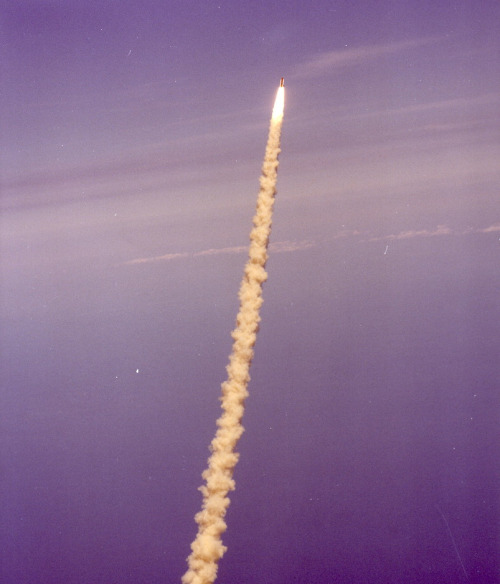
On its maiden flight, the Shuttle Challenger hurtles toward space, April 4, 1983.
Eight Things to Know About Our Flying Observatory
Our flying observatory, called SOFIA, is the world’s largest airborne observatory. It is a partnership with the German Aerospace Center (DLR). SOFIA studies the life cycle of stars, planets (including Pluto’s atmosphere), how interstellar dust can contribute to planet formation, analyzes the area around black holes, and identifies complex molecules in space.
1. A Telescope in an Airplane

SOFIA stands for the Stratospheric Observatory for Infrared Astronomy. It is a Boeing 747SP aircraft that carries a 100-inch telescope to observe the universe while flying between 38,000 and 45,000 feet – the layer of Earth’s atmosphere called the stratosphere.
2. The Short Aircraft Means Long Flights

SP stands for “special performance.” The plane is 47 feet shorter than a standard 747, so it’s lighter and can fly greater distances. Each observing flight lasts 10-12 hours.
3. It Flies with A Hole in the Side of the Plane…

The telescope is behind a door that opens when SOFIA reaches altitude so astronomers on board can study the universe. The kind of light SOFIA observes, infrared, is blocked by almost all materials, so engineers designed the side of the aircraft to direct air up-and-over the open cavity, ensuring a smooth flight.
4. …But the Cabin is Pressurized!

A wall, called a pressure bulkhead, was added between the telescope and the cabin so the team inside the aircraft stays comfortable and safe. Each flight has pilots, telescope operators, scientists, flight planners and mission crew aboard.
5. This Telescope Has to Fly

Water vapor in Earth’s atmosphere blocks infrared light from reaching the ground. Flying at more than 39,000 feet puts SOFIA above more than 99% of this vapor, allowing astronomers to study infrared light coming from space. The airborne observatory can carry heavier, more powerful instruments than space-based observatories because it is not limited by launch weight restrictions and solar power.
6. Studying the Invisible Universe

Humans cannot see what is beyond the rainbow of visible light. However, many interesting astronomical processes happen in the clouds of dust and gas that often surround the objects SOFIA studies, like newly forming stars. Infrared light can pass through these clouds, allowing astronomers to study what is happening inside these areas.
7. The German Telescope

The telescope was built our partner, the German Aerospace Center, DLR. It is made of a glass-ceramic material called Zerodur that does not change shape when exposed to extremely cold temperatures. The telescope has a honeycomb design, which reduces the weight by 80%, from 8,700 lb to 1,764 lb. (Note that the honeycomb design was only visible before the reflective aluminum coating was applied to the mirror’s surface).
8. ZigZag Flights with a Purpose

The telescope can move up and down, between 20-60 degrees above the horizon. But it can only move significantly left and right by turning the whole aircraft. Each new direction of the flight means astronomers are studying a new celestial object. SOFIA’s flight planners carefully map where the plane needs to fly to best observe each object planned for that night.
Make sure to follow us on Tumblr for your regular dose of space: http://nasa.tumblr.com

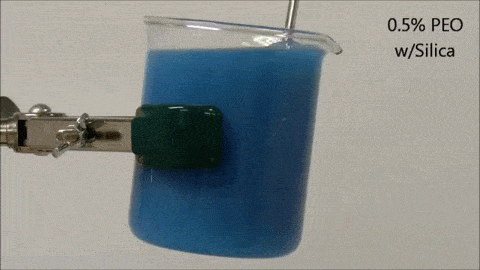
Non-Newtonian fluids are capable of all kinds of counter-intuitive behaviors. The animations above demonstrate one of them: the tubeless or open siphon. Once the effect is triggered by removing some of the liquid, the fluid quickly pours itself out of the beaker. This is possible thanks to the polymers in the liquid. The falling liquid pulls on the fluid left behind in the beaker, which stretches the polymers in the fluid. When stretched, the polymers provide internal tension that opposes the extensional force being applied. This keeps the fluid in the beaker from simply detaching from the falling liquid. Instead, it flows up and over the side against the force of gravity, behaving rather more like a chain than a fluid! (Image credit: Ewoldt Research Group, source)


Angel aura geode sphere
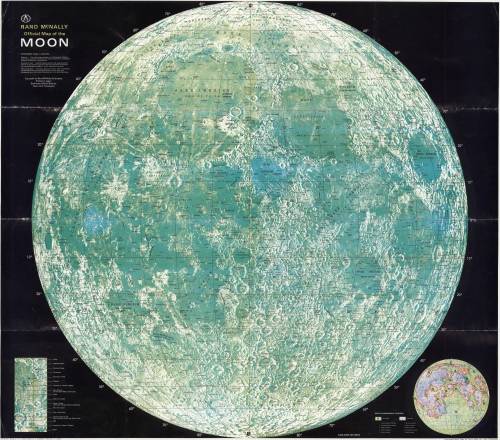
The Rand McNally Official Map of the Moon, 1958.
(David Rumsey Map Collection)
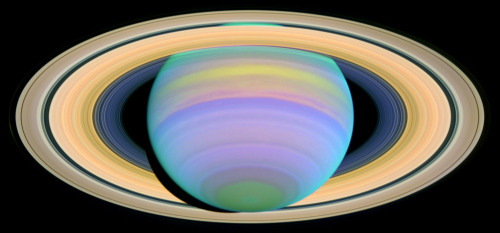
Saturn’s Rings in Ultraviolet Light
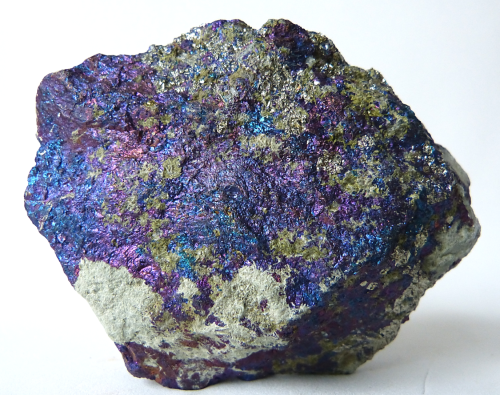
BORNITE (Copper Iron Sulfide) also known as peacock ore due to the colourful tarnish.
Dreamed of Being an Astronaut?
TweetChat with Astronaut Serena Auñón
Astronaut Serena Auñón hosted a TweetChat where she answered your questions on what it’s like to be an astronaut.

We’re currently accepting applications for the next astronaut class, until Feb. 18. You can find get details and apply HERE. The job posting is available on USAJobs.
Here are a few of the great questions she was asked:














You can check out the full conversation at the #BeAnAstronaut hashtag on Twitter.
Follow astronaut Serena Auñón on Twitter.
Make sure to follow us on Tumblr for your regular dose of space: http://nasa.tumblr.com

Balloon on bed of nails – Dylan Camilleri
Also on Youtube (the ballon does not burst).
-
 with-regret liked this · 8 years ago
with-regret liked this · 8 years ago -
 thunderstormsonpluto reblogged this · 8 years ago
thunderstormsonpluto reblogged this · 8 years ago -
 heythere1212 reblogged this · 8 years ago
heythere1212 reblogged this · 8 years ago -
 natual liked this · 9 years ago
natual liked this · 9 years ago -
 immaghast reblogged this · 9 years ago
immaghast reblogged this · 9 years ago -
 gingercootieveggie liked this · 9 years ago
gingercootieveggie liked this · 9 years ago -
 mrsdelusional reblogged this · 9 years ago
mrsdelusional reblogged this · 9 years ago -
 mrsdelusional liked this · 9 years ago
mrsdelusional liked this · 9 years ago -
 pricklypear1997 liked this · 9 years ago
pricklypear1997 liked this · 9 years ago -
 autumnginny reblogged this · 9 years ago
autumnginny reblogged this · 9 years ago -
 vidablia liked this · 9 years ago
vidablia liked this · 9 years ago -
 lustbylake liked this · 9 years ago
lustbylake liked this · 9 years ago -
 bushdid7eleven liked this · 9 years ago
bushdid7eleven liked this · 9 years ago -
 erebus-luckycharm reblogged this · 9 years ago
erebus-luckycharm reblogged this · 9 years ago -
 creonkilledme-blog liked this · 9 years ago
creonkilledme-blog liked this · 9 years ago -
 lilys-sketchbook liked this · 9 years ago
lilys-sketchbook liked this · 9 years ago -
 itssoldier76 liked this · 9 years ago
itssoldier76 liked this · 9 years ago -
 nicolechristina354 liked this · 9 years ago
nicolechristina354 liked this · 9 years ago -
 jenny-the-stars reblogged this · 9 years ago
jenny-the-stars reblogged this · 9 years ago -
 whenyourfavouritedies liked this · 9 years ago
whenyourfavouritedies liked this · 9 years ago -
 trainee-squad-104 reblogged this · 9 years ago
trainee-squad-104 reblogged this · 9 years ago -
 drinkmoretea liked this · 9 years ago
drinkmoretea liked this · 9 years ago -
 aaboutblank liked this · 9 years ago
aaboutblank liked this · 9 years ago -
 elletromil liked this · 9 years ago
elletromil liked this · 9 years ago -
 garwudan liked this · 9 years ago
garwudan liked this · 9 years ago -
 humanloving liked this · 9 years ago
humanloving liked this · 9 years ago -
 gothsherder liked this · 9 years ago
gothsherder liked this · 9 years ago -
 phthalology liked this · 9 years ago
phthalology liked this · 9 years ago -
 mdwhite101-official liked this · 9 years ago
mdwhite101-official liked this · 9 years ago -
 kawaiiheart liked this · 9 years ago
kawaiiheart liked this · 9 years ago -
 himbocles reblogged this · 9 years ago
himbocles reblogged this · 9 years ago -
 theeverpresentwordsnatcher reblogged this · 9 years ago
theeverpresentwordsnatcher reblogged this · 9 years ago -
 mikaeis reblogged this · 9 years ago
mikaeis reblogged this · 9 years ago -
 mikaeis liked this · 9 years ago
mikaeis liked this · 9 years ago -
 aaresiv reblogged this · 9 years ago
aaresiv reblogged this · 9 years ago -
 tranxio liked this · 9 years ago
tranxio liked this · 9 years ago -
 jupiter-on-earth liked this · 9 years ago
jupiter-on-earth liked this · 9 years ago -
 btomchick02 reblogged this · 9 years ago
btomchick02 reblogged this · 9 years ago -
 myriadplethorae liked this · 9 years ago
myriadplethorae liked this · 9 years ago -
 h3t3ro-flexible reblogged this · 9 years ago
h3t3ro-flexible reblogged this · 9 years ago -
 thank-you-mrs-loopner liked this · 9 years ago
thank-you-mrs-loopner liked this · 9 years ago -
 propagate-against-all-odds-blog liked this · 9 years ago
propagate-against-all-odds-blog liked this · 9 years ago